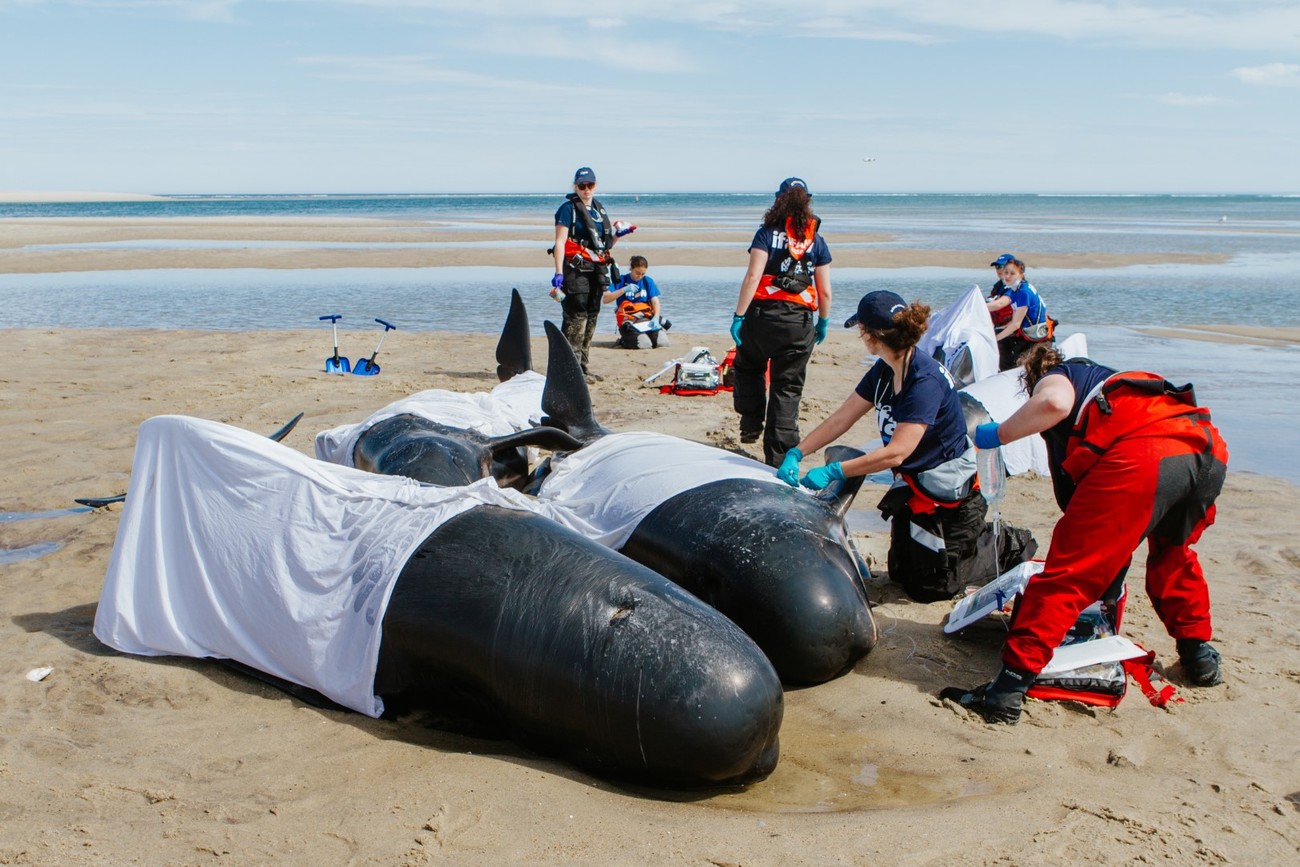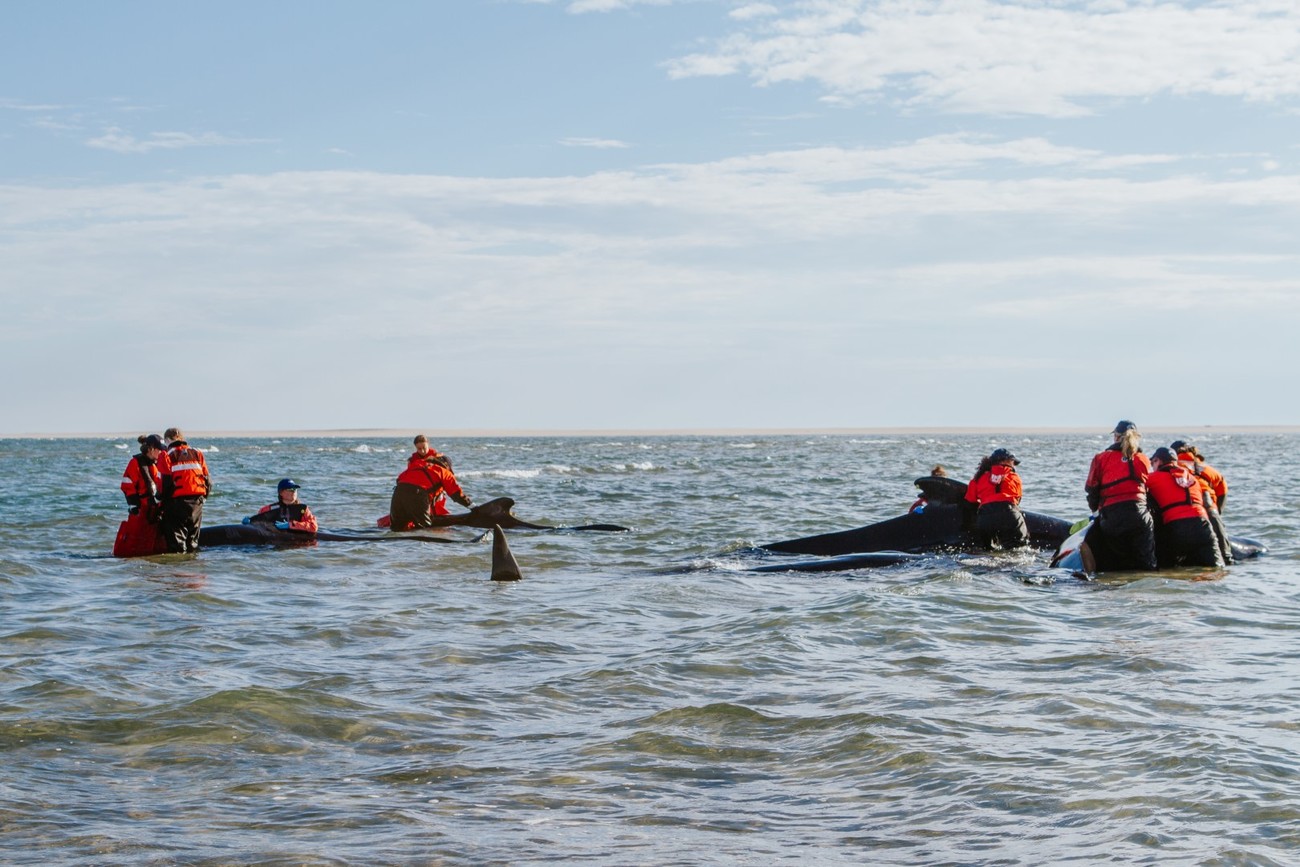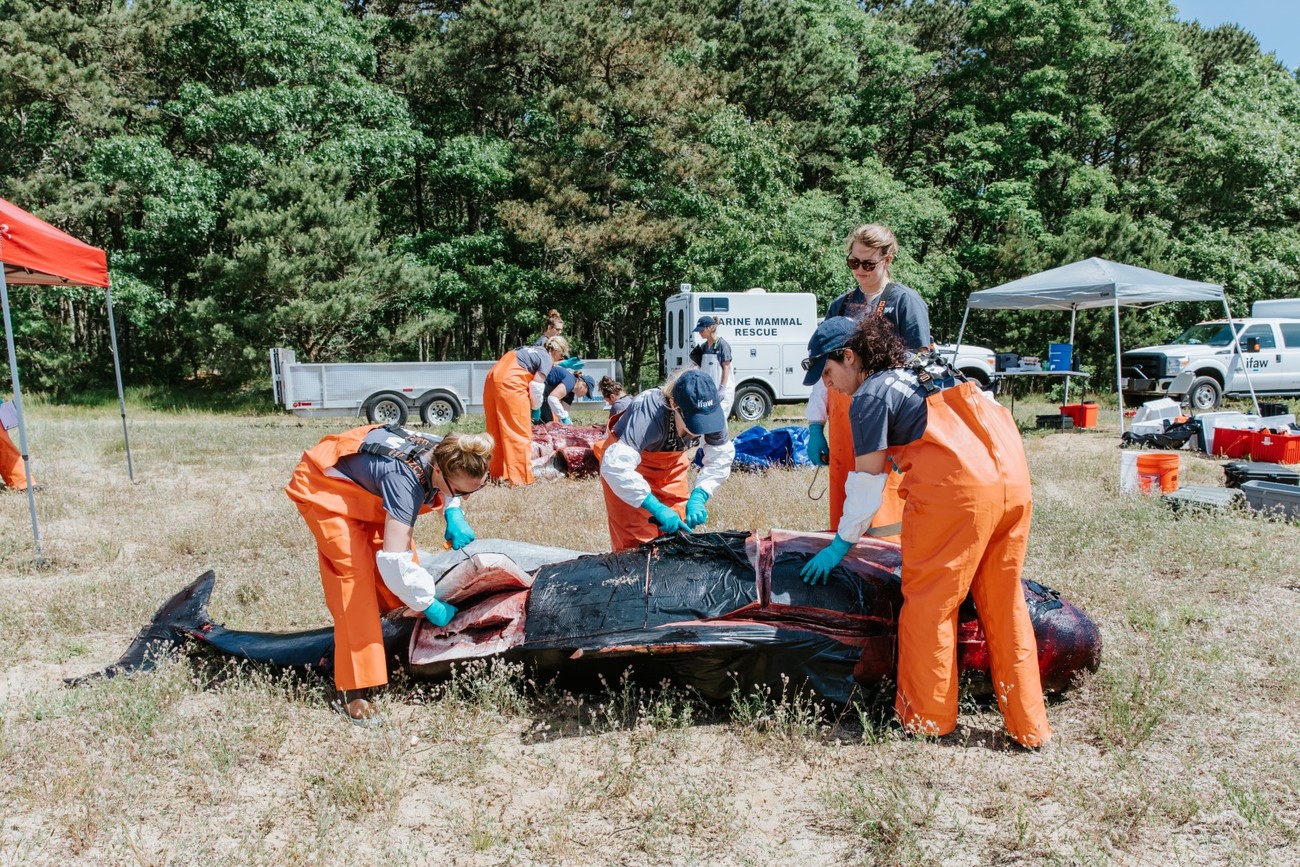Stranded Marine Mammal Rescue - Global
When the tide is low, the stakes are high for marine mammalsmulti-day rescue response to 5 stranded pilot whales in Chatham, Cape Cod
multi-day rescue response to 5 stranded pilot whales in Chatham, Cape Cod

In a challenging rescue event that spanned multiple days, our Marine Mammal Rescue & Research team responded last week to a pod of five long-finned pilot whales that stranded on Cape Cod. With mixed outcomes, this response called on a variety of expert skillsets and collaborations, and as always, provided an opportunity for further study.
The whales stranded on a sandbar at the southern entrance of Chatham Harbor, a location only accessible by boat. This area is notoriously difficult to navigate and work in, with ever-changing shoals of sand, large tidal fluctuations and strong currents. Due to these logistical challenges, we relied on/were grateful for assistance from the Chatham Harbormaster and the U.S. Fish and Wildlife Service (USFWS).
Quickly arriving on scene, IFAW staff and interns immediately provided supportive care to the whales—righting them to help them breathe more easily, keeping them cool and preventing sunburn with wet sheets and Equi Cool Down wraps. Our veterinarian and staff began health assessments and were also able to begin rehydrating the animals with IV fluids.

While working to keep them comfortable, one of the whales in the group died—this whale was in poor nutritional condition and had been minimally responsive throughout the team’s response. The remaining four whales were supported in an attempt to re-float them as the tide came back in. Two whales were spotted successfully swimming out of the harbor, while the remaining two continued to swim inside this difficult area.

Over the next two days, the two remaining whales restranded on the outer shores of the harbour. With their health having declined significantly from the stress and shock of the strandings, and their chances of survival slim, our team made the difficult but humane decision to euthanise the whales to prevent further suffering.
The two euthanised whales were collected for necropsy (animal autopsy) to help determine why they may have stranded. Pilot whales live in tight-knit social groups—a bond so strong that they are known to follow ill pod members to shore. It’s possible that one of the whales was in poor health, causing the others to strand with it, but that is difficult to determine without examining every animal. It’s also quite possible that the difficult area to navigate played a role in the stranding, with the whales simply being in the wrong place at the wrong time.

Due to the size of the pilot whales, up to 15 feet (4.6m) in length and weighing roughly a ton (900kg) or more, the effects of stranding on these animals are extreme, making rescue difficult. In what we consider a success, the two pilot whales that swam out of the harbour have not been resighted and we are hopeful that they have made their way offshore to deeper water. Being a social species, these whales are likely to integrate into a pod and continue to thrive!
We’d like to give a special thank you to the Chatham Harbor Master, USFWS, Atlantic White Shark Conservancy, the Monomoy National Wildlife Refuge, IFAW volunteer responders, and the Dennis Transfer Station for their help on the water, in the air, and from shore during this difficult response.
*Activities conducted under a federal stranding agreement between IFAW and NMFS under the MMPA
Related content
every problem has a solution, every solution needs support.
The problems we face are urgent, complicated, and resistant to change. Real solutions demand creativity, hard work, and involvement from people like you.